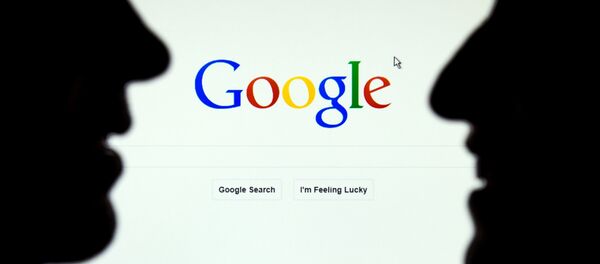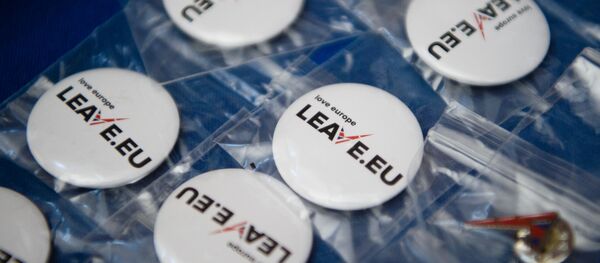Skinner is Chair of the European networking forum The Financial Services Club and Nordic Finance Innovation, as well as being a Non-Executive Director of the Fintech consultancy firm 11:FS.
Sputnik: In the annotation to your book "Digital Human: The Fourth Revolution of Humanity Includes Everyone", you said "We live in the fourth age of humanity". Could you describe in more detail, what you mean by that?
The key reason why Homo Sapiens dominate Earth rather than the other forms of humans, of which there were seven when we appeared, we have a voice and a larynx and communicate and the others didn't do so in the same way, which meant that we lived in communities that were larger than the other communities of human form.

Sputnik: In your book you also mention that "Soon, not only will everyone on the planet be connected digitally, they can be raised out of poverty through inclusion", could you please explain your vision of how inclusion can help lift people out of poverty and how long will it take to achieve such success?
Chris Skinner: In the Industrial Revolution, when we created banks, they were distributing paper and managing everything through localised networks of buildings and humans. As a result, only one in three customers could be served, because two-thirds of the planet up until ten years ago were unbanked, or underbanked, because it was too expensive, to serve those people, because, they didn't have much savings, investments, or trade to offer.
READ MORE: Data Localisation No Panacea for Cyberattacks, Claims Data Forensic Expert
But in a digital world, we can service everybody, because it's cheap. Processing one cent on the digital network actually is the same cost as processing a million dollars on the digital network. So, we're seeing now across, Africa, South America. Asia, in particular, 2.5 billion people, who had no banking, becoming banked. Digital inclusion and financial inclusion offers everybody the access to trade and transact to become entrepreneurs.
Sputnik: To your mind, what is the most successful financial service that helped people to be included?
What they're doing is taking the technology that China processes truly as if dollars and exporting that to markets, where people don't have bank accounts, but could have financial inclusion, if there was a right platform to do that. So, what they're doing is they're providing the technology platform for financial inclusion globally, but run by local partners.
Sputnik: You have been voted one of the most influential people in banking by The Financial Brand, as one of the Top 40 most influential people in financial technology by The Wall Street Journal's Financial News. How would you describe the digital evolution in banking? What kinds of obstacles are banks facing?
Chris Skinner: Well, I've been involved in technology and banking for a long time and for a long time the same messages have been shouted by the technology companies, which is: you need to rationalise, produce better data, cleaner data, be more intimate with the customers, digital lifestyles and digital structures and start to offer consistent, consolidated capabilities to customers, rather than fragmented legacy structures.
What's happening today is we still have those challenges for a lot of banks, particularly in Europe, America, Russia, where the structures have been implemented for many years, because technology changes so quickly. I've mentioned Alipay. What they do is they actually change their technology structure every three or four years. Most of the banks, I deal with in Europe, haven't changed their technology structures for 30 or 40 years.
READ MORE: Finns Discouraged From Using Russian App Amid Data Collection Scare
That is the biggest problem, which is if you have 30-year or older structures running the bank then they're just not fit for the real-time digital 21st century. Most banks are running technology that was implemented before Mark Zuckerberg was born.

They know their financial, digital lifestyle. If the bank can become really good at proactive, predictive, personalised service of customers' data, then I think they can stay incredibly relevant, particularly as they have a number of roles, I think they can perform around life events management, digital asset management. Because right now I have lots of digital assets, but why do I trust Facebook to store my memories, when they actually if they deleted them, I'd have no comeback. I'd quite like to store my memories with someone who manages my digital assets. So, I think it's a strong role for the banks in the future. They can get data fit.
Sputnik: What is your forecast for the future of the banking industry in terms of going digital?
Chris Skinner: Going back to where we started our conversation around the revolutions in humanity. The third revolution was the Industrial Revolution that created banks. In each revolution, what was there before doesn't disappear, or gets wiped out, it still exists, but in a different form. What we gonna see is a movement towards this digital transformation journey. As a journey it doesn't have a destination, it just is a continuous march of change and we gonna see banks still exist for the long term.
READ MORE: Saudi Arabia Spied on Dissident Using Israeli Phone Hacking Tech — Report
They're not going to disappear, but they just gonna be completely different in how they're structured and operated. One of the things that really annoys me is so many people say that banks are stupid and they are dinosaurs and they're gonna disappear. My answer is they won't, as long as they adapt to survive. Those are adapting and doing pretty well. In fact, there is quite a few here in Russia that I deal with that are doing really well.
The views expressed in this article are solely those of Chris Skinner and do not necessarily reflect the official position of Sputnik.






